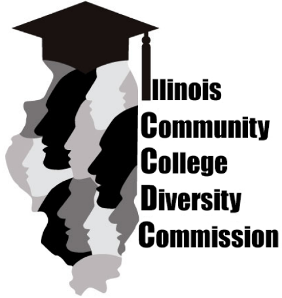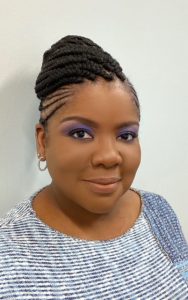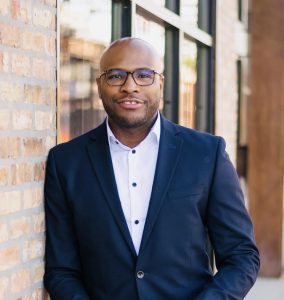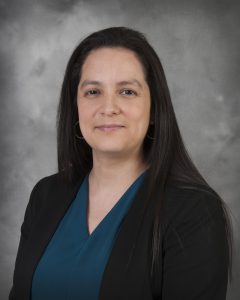Table of Contents
FY26 Membership Drive
ICCDC invites currently employed Illinois Community College Diversity Practitioners to join the commission:
Executive Board
FY26 Member Institutions (in progress)
| Black Hawk College | John A Logan College | Parkland College |
| Carl Sandburg College | Joliet Junior College** | Prairie State College* |
| City Colleges of Chicago* | Kankakee Community College | Rend Lake College |
| College of DuPage | Kaskaskia College* | Richland Community College |
| College of Lake County | Kishwaukee College | Rock Valley College |
| Elgin Community College | Lake Land College | Sauk Valley Community College |
| Harper College** | Lewis and Clark Community College* | Shawnee Community College* |
| Heartland Community College | Lincoln Land Community College | South Suburban College |
| Highland Community College | McHenry County College | Southeastern Illinois College |
| Illinois Eastern Community Colleges | Moraine Valley Community College** | Triton College |
| Illinois Valley Community College | Morton College | Waubonsee Community College** |
*Denotes Colleges with individual representatives
**Denotes Colleges with one or more affiliated members
Becoming a Member
ICCDC invites currently employed Illinois Community College Diversity Practitioners to join the commission:
- FY26 ICCDC Membership Form
- Institution and Individual Membership Fees
- Institution Membership fee – $200
- Institutional fee includes one individual membership
- Individual Membership fee
- $50 (if your institution is a paid member of the commission)
- $100 (if your institution is not affiliated with the commission)
- Institution Membership fee – $200
Prior Leadership Teams
- FY 2026
- Dr. Candice Dowd Maxwell, President
- Dr. Rick Daniels, Vice President/Pres-Elect
- Jessica Santillan-Reyes, Treasurer
- Terrance Bond, Marketing & Communications Coordinator
- FY 2025
- Purva DeVol, President
- Candice Maxwell, VP/Pres-Elect
- Nicole DelMastro-Jeffery, Secretary
- Yolonda Barnes, Treasurer
- Anthony Ramos, Past-President
- FY 2024
- Anthony Ramos, President
- Purva DeVol, VP/Pres-Elect
- Mikael Gibson, Secretary (Fall)
- Candice Maxwell, Secretary (Spring)
- Yolonda Barnes, Treasurer
- Terrance Bond, Past-President
- FY 2023
- Terrance Bond, President
- Anthony Ramos, VP/Pres-Elect
- Mikael Gibson, Secretary
- Laura Ortiz, Treasurer
- Isaac Zuniga, Past-President
- FY 2022
- Isaac Zuniga, President
- Terrance Bond, Acting President/VP
- Mikael Gibson, Secretary
- Laura Ortiz, Treasurer
- Nick Branson, Past-President
- FY 2021
- Isaac Zuniga, President
- Terrance Bond, Vice President
- Erin Farmer, Secretary
- Laura Ortiz, Treasurer
- Nick Branson, Past-President
- FY 2020
- Nick Branson, President
- Isaac Zuniga, Vice President
- Erin Farmer, Secretary
- Laura Ortiz, Treasurer
FY25 Member Institutions
| Black Hawk College | John A Logan College | Parkland College |
| Carl Sandburg College | Joliet Junior College** | Prairie State College* |
| City Colleges of Chicago* | Kankakee Community College | Rend Lake College |
| College of DuPage | Kaskaskia College* | Richland Community College |
| College of Lake County | Kishwaukee College | Rock Valley College |
| Elgin Community College | Lake Land College | Sauk Valley Community College |
| Harper College** | Lewis and Clark Community College* | Shawnee Community College* |
| Heartland Community College | Lincoln Land Community College | South Suburban College |
| Highland Community College | McHenry County College | Southeastern Illinois College |
| Illinois Eastern Community Colleges | Moraine Valley Community College** | Triton College |
| Illinois Valley Community College | Morton College | Waubonsee Community College** |
FY24 Member Institutions
| Black Hawk College | McHenry County College |
| City Colleges of Chicago | Moraine Valley Community College |
| Elgin Community College | Morton College |
| Heartland Community College | Parkland College |
| Illinois Eastern Community Colleges | Rend Lake College |
| Joliet Junior College | Rock Valley College |
| Kankakee Community College | Southeastern Illinois College |
| Kishwaukee College | Triton College |
| Lincoln Land Community College | Waubonsee Community College |
FY22-23 Member Institutions
| Black Hawk College | Kankakee Community College |
| City Colleges of Chicago | Kishwaukee College |
| College of Lake County | Lewis & Clark Community College |
| Danville Area Community College | McHenry County College |
| Elgin Community College | Richland College |
| Heartland Community College | Rock Valley College |
| Illinois Consortium for International Studies and Programs | Southeastern Illinois College |
| Illinois Eastern Community College District 529 | Triton College |
| John A. Logan College | Waubonsee Community College |
| Joliet Junior College |




